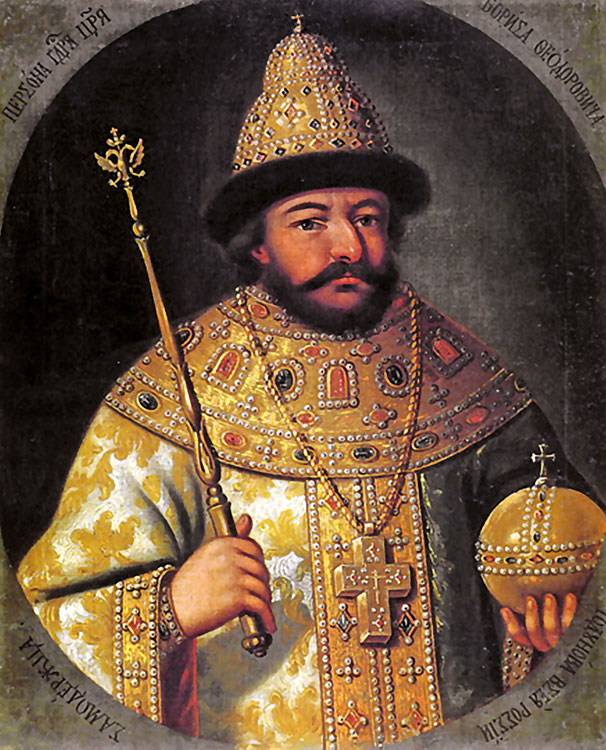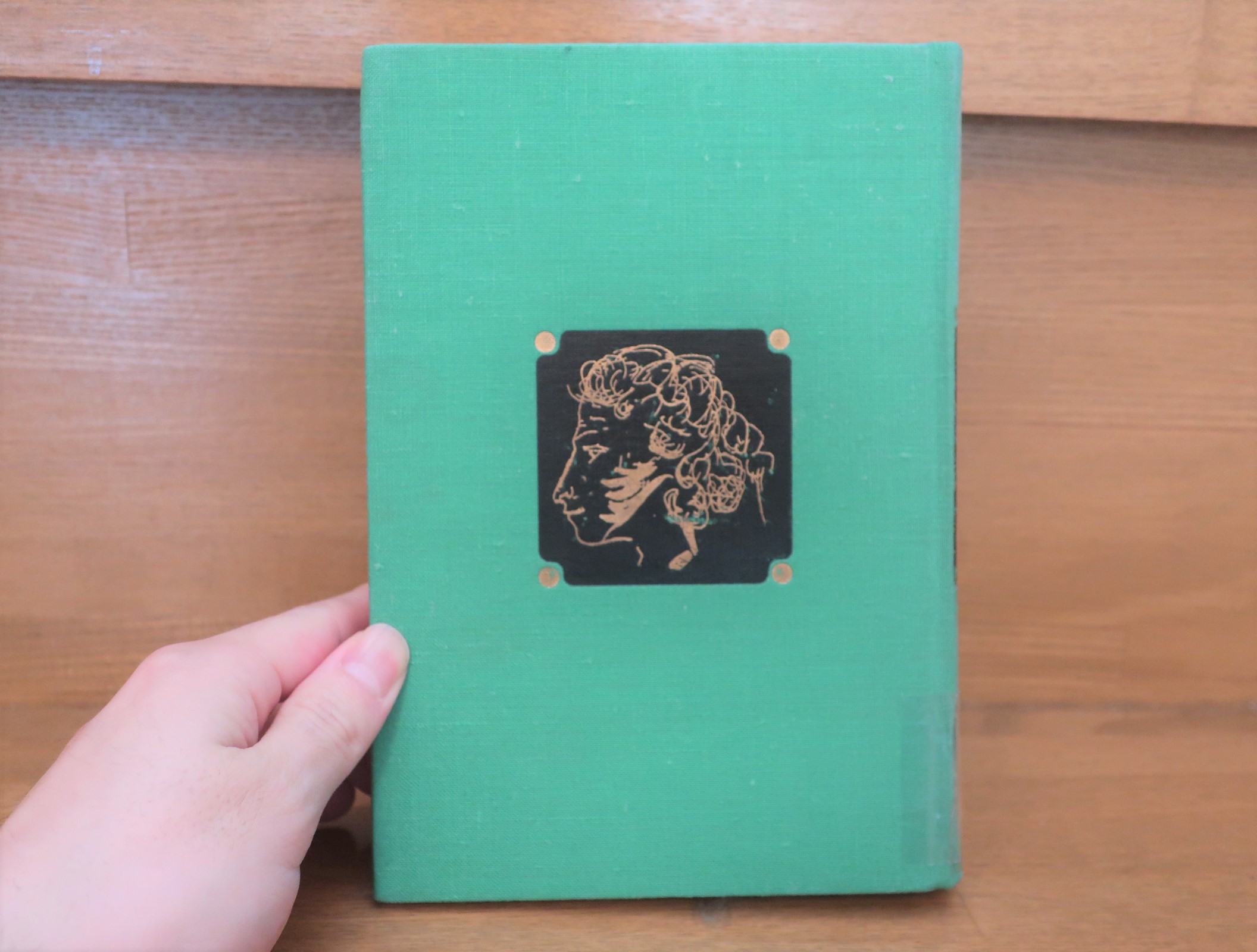Overview and Synopsis of Pushkin's Boris Godunov
Boris Godunov" was completed in 1825 and published in 1830. Originally a dramatic poem, it was designed to be performed on stage, but due to censorship, the work was considered a criticism of the Empire, and its first performance was in 1876.
I read "Boris Godunov" in "The Complete Works of Pushkin 3: Folk Tales and Dramatic Poems," translated by Nobuyuki Kitagaki and Shigeo Kurihara, published by Kawade Shobo Shinsha.
This is a historical drama about Russia after the death of the tyrant Ivan the Terrible, who ruled Russia with overwhelming charisma.
I previously posted on my blog, "A brief history of the mysterious country of Russia!As seen in the article "The Romanov Dynasty", the period from 1584 to 1613, from the death of Ivan the Terrible to the establishment of the Romanov dynasty, is the period of turmoil after the death of the Thunder Czar.
This work is a dramatic poem about the reign of Czar Boris Godunov, the most dramatic of them all.

It would take a very long time to explain who Boris Godunov was, so I will not go into details.
He was a brilliant politician who quickly rose through the ranks to become a close associate of Ivan the Terrible.
And lo and behold, Ivan the Terrible married his son, the heir to the throne, to Godunov's sister. In other words, Godunov became the brother-in-law of the next emperor.
After the death of Ivan the Terrible, his heir to the throne, Feodor became emperor, but he had no political power and his brother-in-law, Godunov, became the regent. This was the de facto beginning of the Godunov administration.
Then Feodor died suddenly and mysteriously, and the imperial throne became vacant.
Godunov was petitioned by the nobility and the people to take the tsar's throne, but he refused for a while. Finally, he agreed, and Boris Godunov became Czar of Russia.
However, he is plagued by aristocratic intrigues and disturbing movements of his enemies. To make matters worse, the country is devastated by a famine of unprecedented proportions. And to make matters worse, the emperor pretender Dimitry appears and revolts.
Dimitry was Feodor's brother, who was to become emperor after Feodor's death, but died mysteriously. The people of the country believed that this was the work of Boris Godunov.
The Emperor Pretender Dimitry rebelled, saying "I am the rightful heir to the throne". Of course, this man is not the real Dimitry. The real Dmitri is already dead. He is merely a poor deserter monk.
In Russia, these czarist pretenders frequently appear and revolt.
Because the imperial family was killing each other in a bloody struggle for the throne, and because it was a good cause for rebellion, such pretenders appeared frequently. The people, dissatisfied with the reign of the current emperor, were encouraged to believe in them.
Pushkin's "Boris Godunov" depicts this complex background with great clarity and a well-honed, concise style.
This work was also very groundbreaking in that it overturned the tacit understanding of the Russian theater world at the time.
The commentary at the end of the book states
In the tragedies of 18th century Classicism, the outcome of the historical struggle was determined by the touch of will and passion of the outstanding historical protagonists who stood far above the people, but in Pushkin's tragedy, neither Boris Godunov nor the pretender Prince Dimitrii nor the nobles are protagonists, they They sense the presence of the people as a special, decisive, historical force on their side. The overthrow of the Godunov dynasty and the victory of the Prince Pretender were not decided by the conspiracy of the nobles who hated Boris, nor by the participation of the Polish army, nor by the success or failure of the military commanders, but by the feelings and actions of the people who quietly rose up against their oppressors in power. It was determined not by the success or failure of the military commanders. Gavrila Pushkin, a close associate of the pretender Prince Dimitrii, in his dialogue with Vasmanov at the "headquarters," speaks of the role of the people in history ("But why are we not the people? ("But do you know why we are strong, Basmanov? Not because of the army, not because of the Polish push, but because of public opinion. But because of public opinion. Yes! It is for the public opinion of the people.)
The Complete Works of Pushkin 3, translated by Nobuyuki Kitagaki and Shigeo Kurihara, Kawade Shobo Shinsha, p. 613-614
At that time, tragedies revolved around historical heroes, outstanding figures, aristocrats, and other protagonists with strong personalities, and the giver of tragedy in the name of fate drove the story.
But Pushkin does not make the story's protagonist, Boris Godunov, or the pretender Czar Dimitry, or the nobles, or even "fate," the driving force of the story.
It is the Russian people who are truly driving this story.
Pushkin is making the case in this work that the will and actions of the Russian people will determine the history of Russia.
This was a milestone in Russian literature and theater.
But of course, this was an anti-establishment idea from the perspective of the Russian government of the time, so it was subject to strict censorship.
This would also lead to his late misfortunes and tragic death in a duel.
Pushkin believed in the power of the Russian people and elevated it to an art form.
Boris Godunov" is a very important work for understanding Pushkin's view of history.
Dostoevsky naturally read this work carefully and took its historical view into his own. Dostoevsky's love of the people may have been influenced by this as well.
I recommend this work as it is very interesting to learn about the history of Russia after the death of Ivan the Terrible.
The above is a synopsis of Pushkin's "Boris Godunov" - a dramatization of the chaotic period after the death of Ivan the Terrible.
Next Article.
Click here to read the previous article.
Related Articles





































